Idea by
Emma Kaufmann LaDuc, Lauro Nächt, Aurora Zordan
Call for ideas 2021
Tolerant urban ecologies
Tolerant urban ecologies
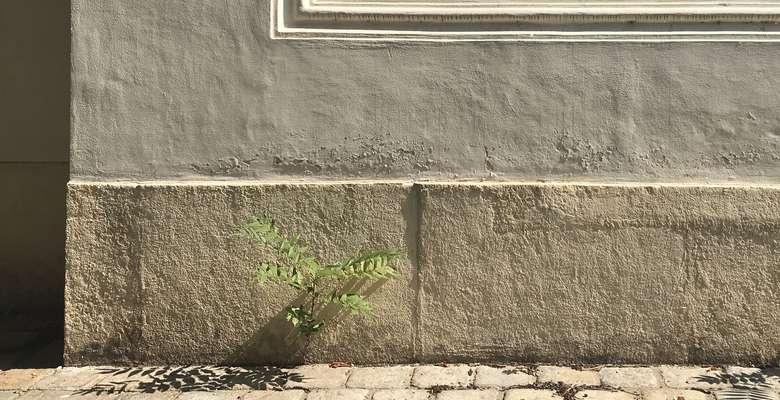
- New alliances
Spontaneous landscapes become the site of an alternative urban practice. We seek to shift away from anthropocentric urbanism and towards a new architectural discourse, where these sites reveal the processes of urbanism and manifest in a tolerated co-production of space.
Nature, or a perversion of, is re-introduced to the city in the form of landscape design. The tree in urban planning is rendered as an element and object, their highly-regulated infrastructures delineating clearly the extent of its space. Within this intolerant model of bureaucratic design, nature in the residual form of spontaneous landscapes is neutralized.
As a last resistance against the smooth city, spontaneous landscapes of disturbance-adapted species expose a site of trauma. An alternative design of care begins from a place of tolerance, within the fabric of urban ecologies. Growth, in turn, reveals the earth as infrastructure – sous les pavés, la terre! – latent beneath the trauma of the city.
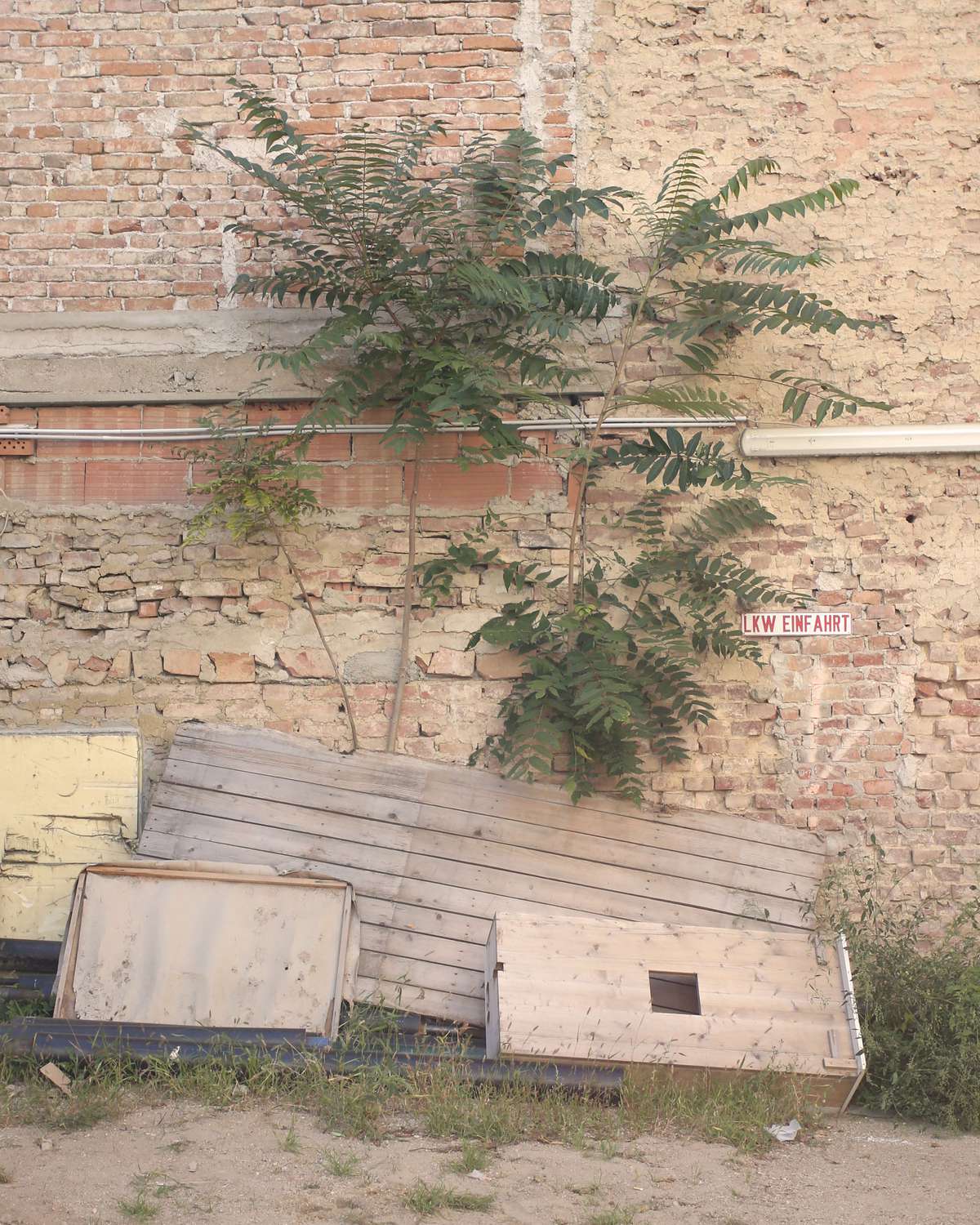
A family of ailanthus trees on a construction site show signs of emergent urban ecologies.
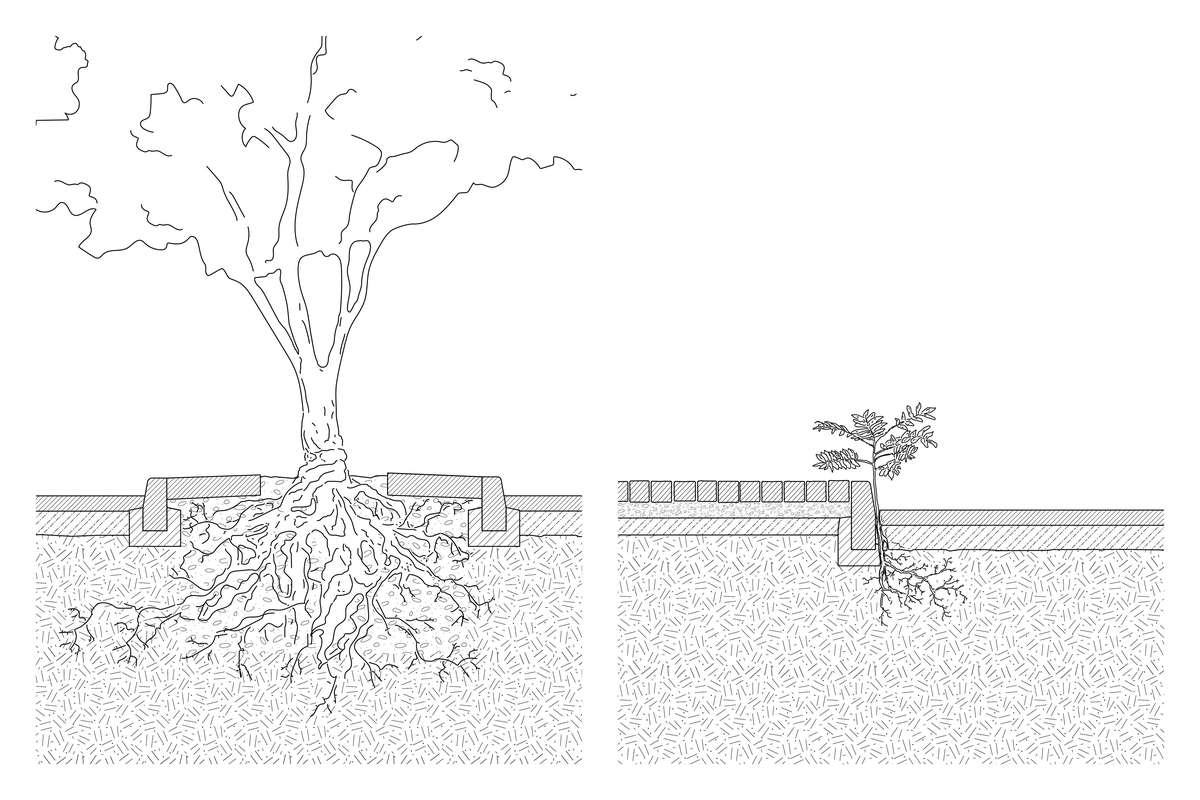
Existing typologies for urban landscapes reinforce a bureaucratic model of intolerance, while spontaneous growth manifests an alternative typology.
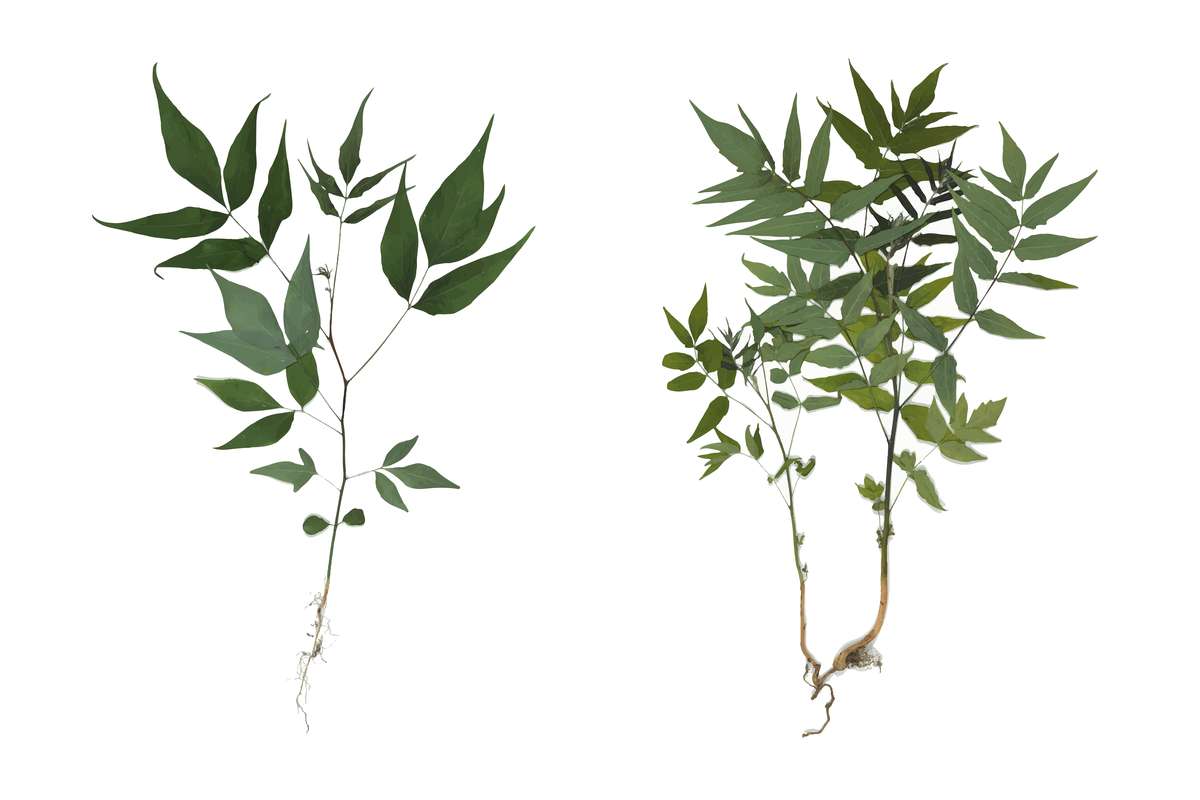
The Ailanthus altissima is a fast-growing species, pre-adapted to the environment of the city.
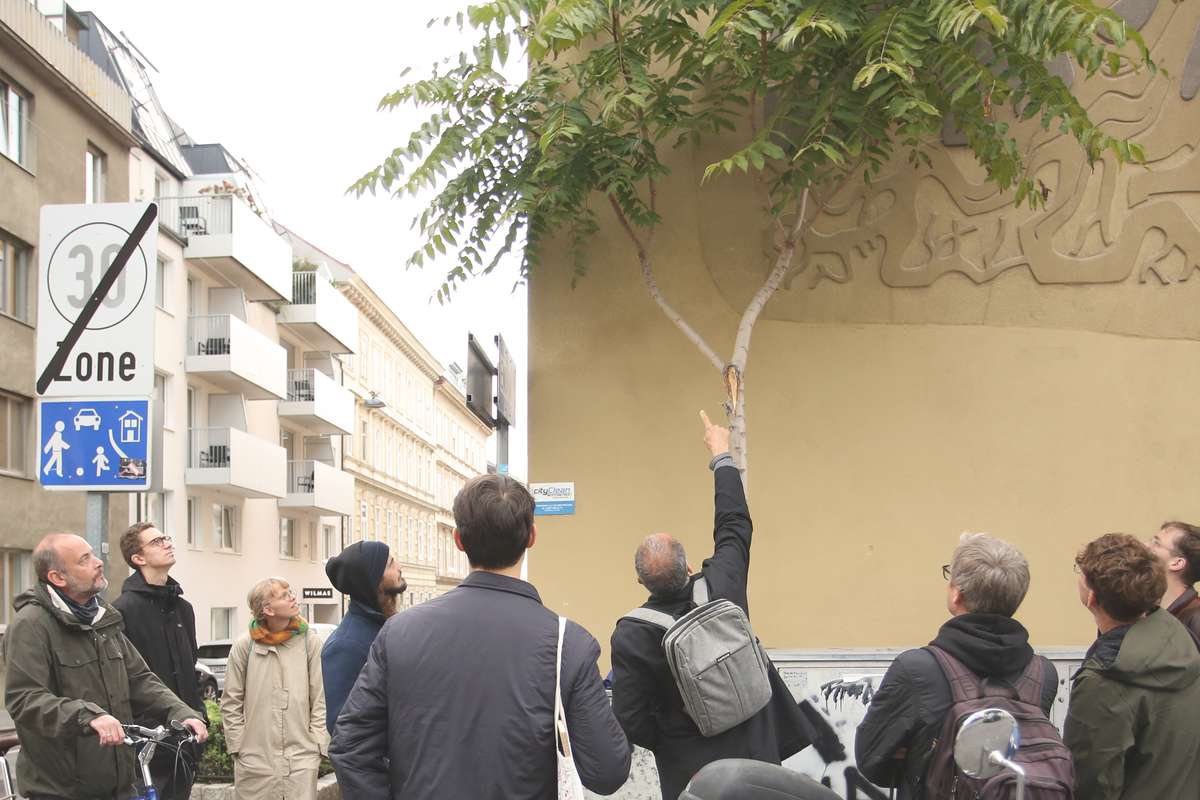
Walks held in the context of the Vienna Design Week 2020 brought together disciplines to talk about spontaneous growth.
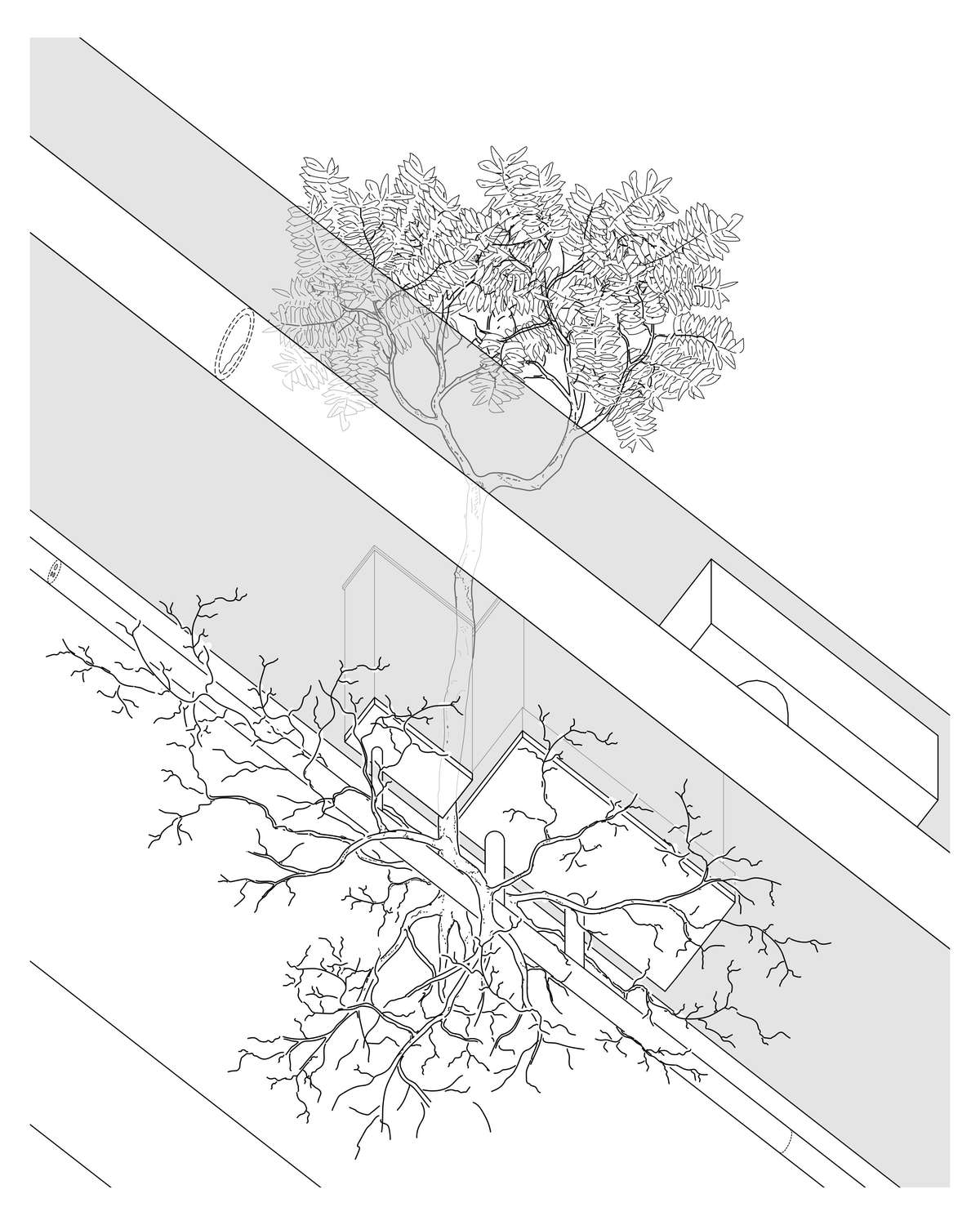
A different perspective towards spontaneous growth reveals the earth as infrastructure.
Tolerant urban ecologies
Tolerant urban ecologies

- New alliances
Spontaneous landscapes become the site of an alternative urban practice. We seek to shift away from anthropocentric urbanism and towards a new architectural discourse, where these sites reveal the processes of urbanism and manifest in a tolerated co-production of space.
Nature, or a perversion of, is re-introduced to the city in the form of landscape design. The tree in urban planning is rendered as an element and object, their highly-regulated infrastructures delineating clearly the extent of its space. Within this intolerant model of bureaucratic design, nature in the residual form of spontaneous landscapes is neutralized.
As a last resistance against the smooth city, spontaneous landscapes of disturbance-adapted species expose a site of trauma. An alternative design of care begins from a place of tolerance, within the fabric of urban ecologies. Growth, in turn, reveals the earth as infrastructure – sous les pavés, la terre! – latent beneath the trauma of the city.
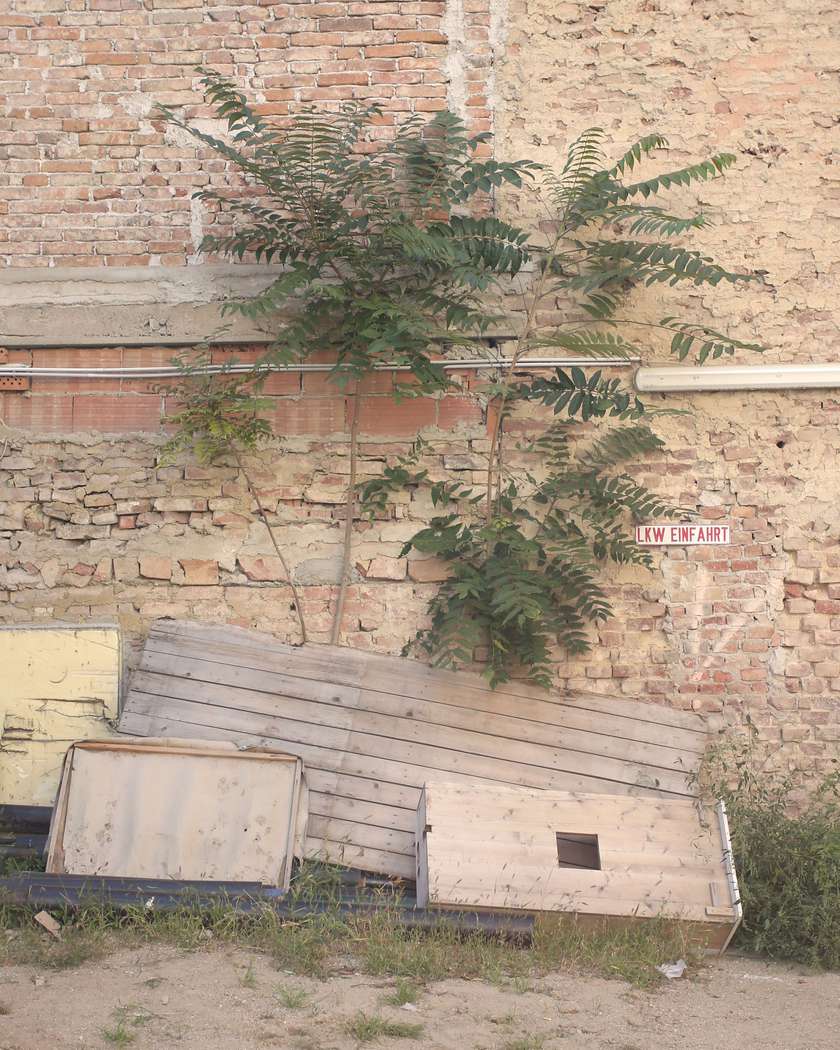
A family of ailanthus trees on a construction site show signs of emergent urban ecologies.
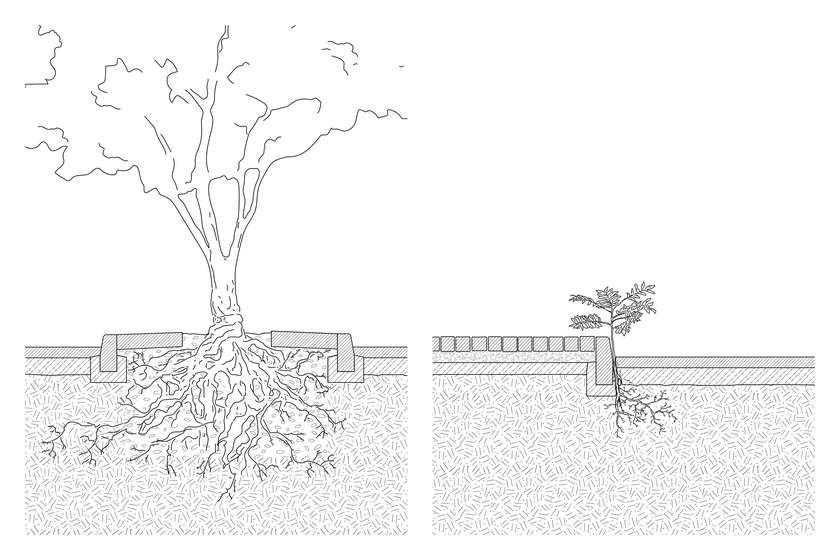
Existing typologies for urban landscapes reinforce a bureaucratic model of intolerance, while spontaneous growth manifests an alternative typology.
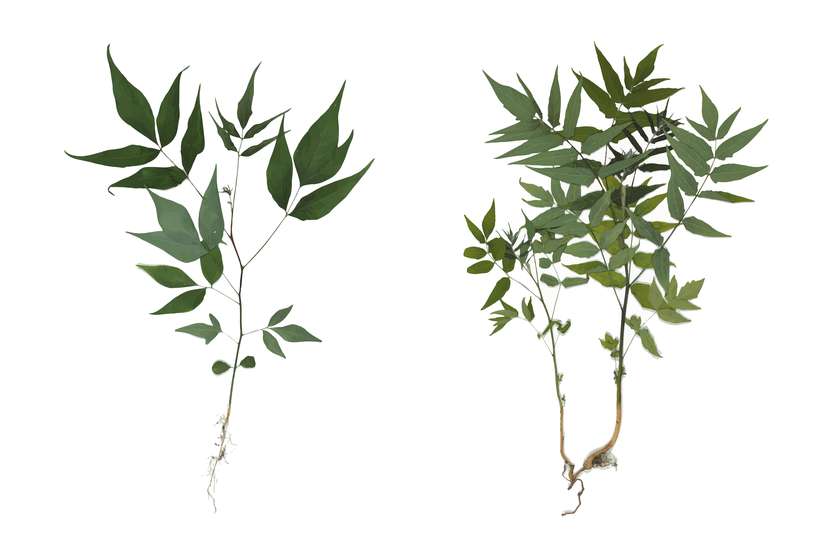
The Ailanthus altissima is a fast-growing species, pre-adapted to the environment of the city.
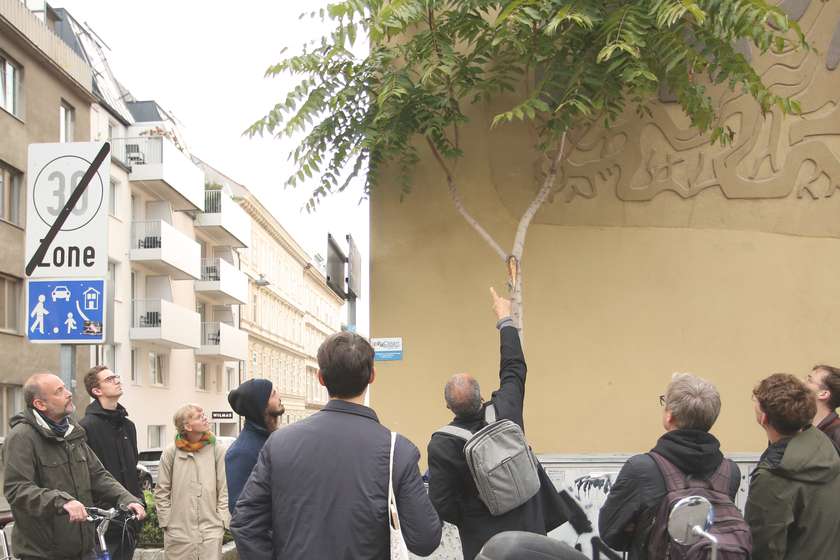
Walks held in the context of the Vienna Design Week 2020 brought together disciplines to talk about spontaneous growth.
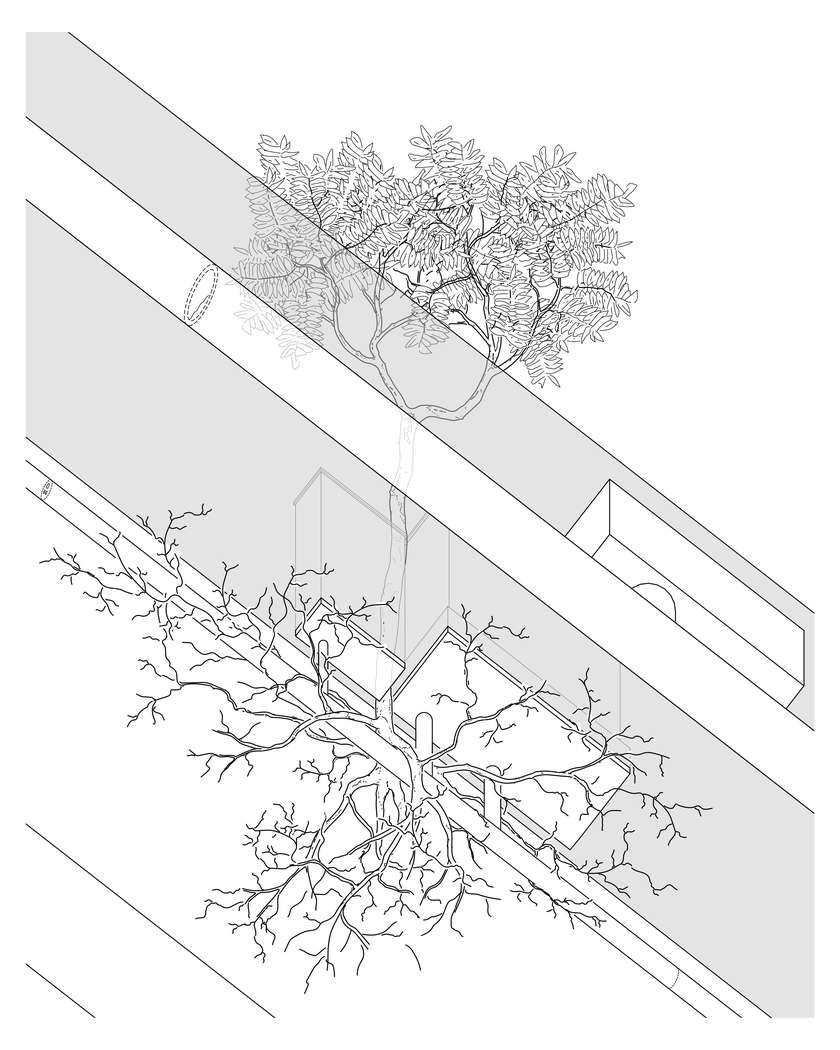
A different perspective towards spontaneous growth reveals the earth as infrastructure.